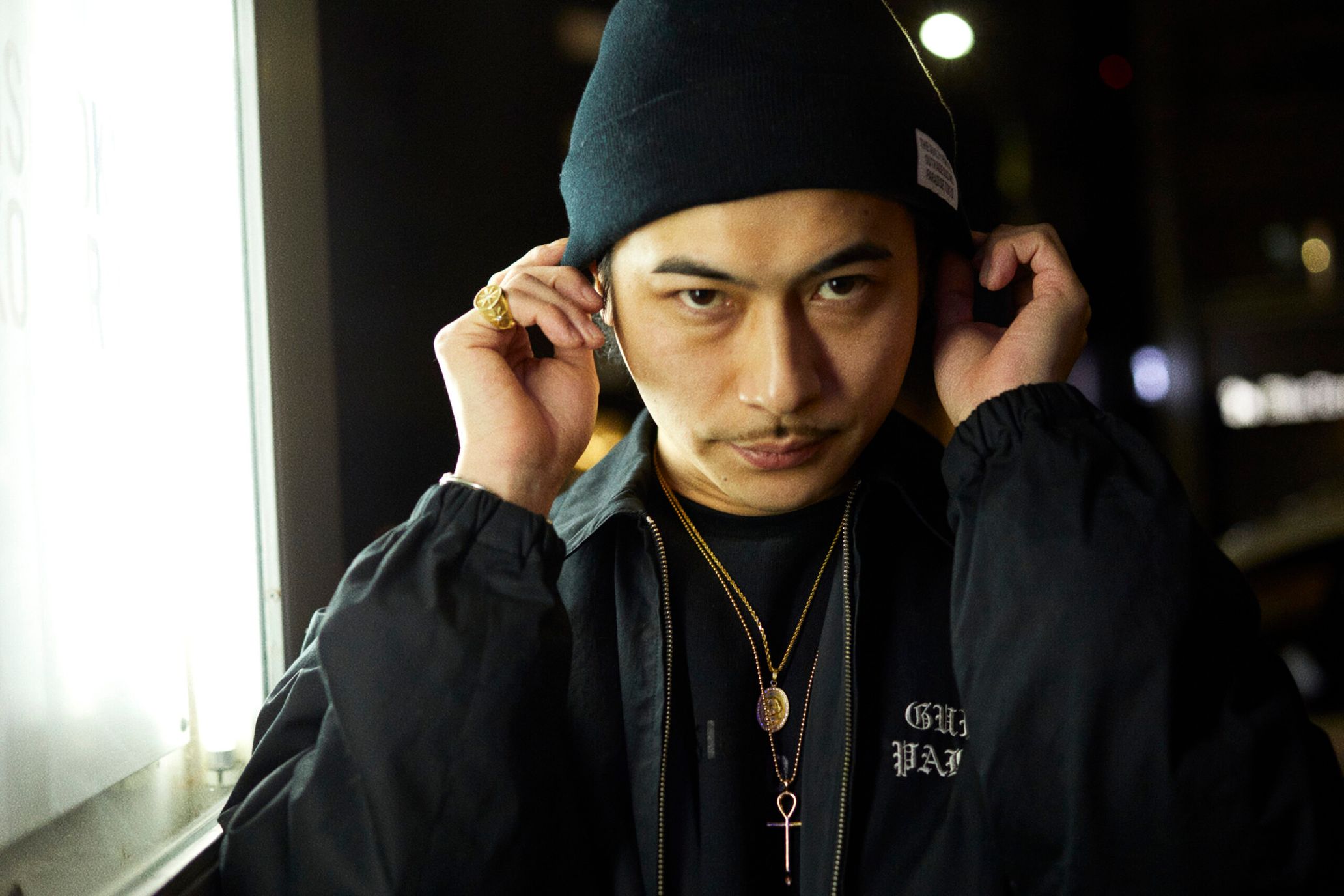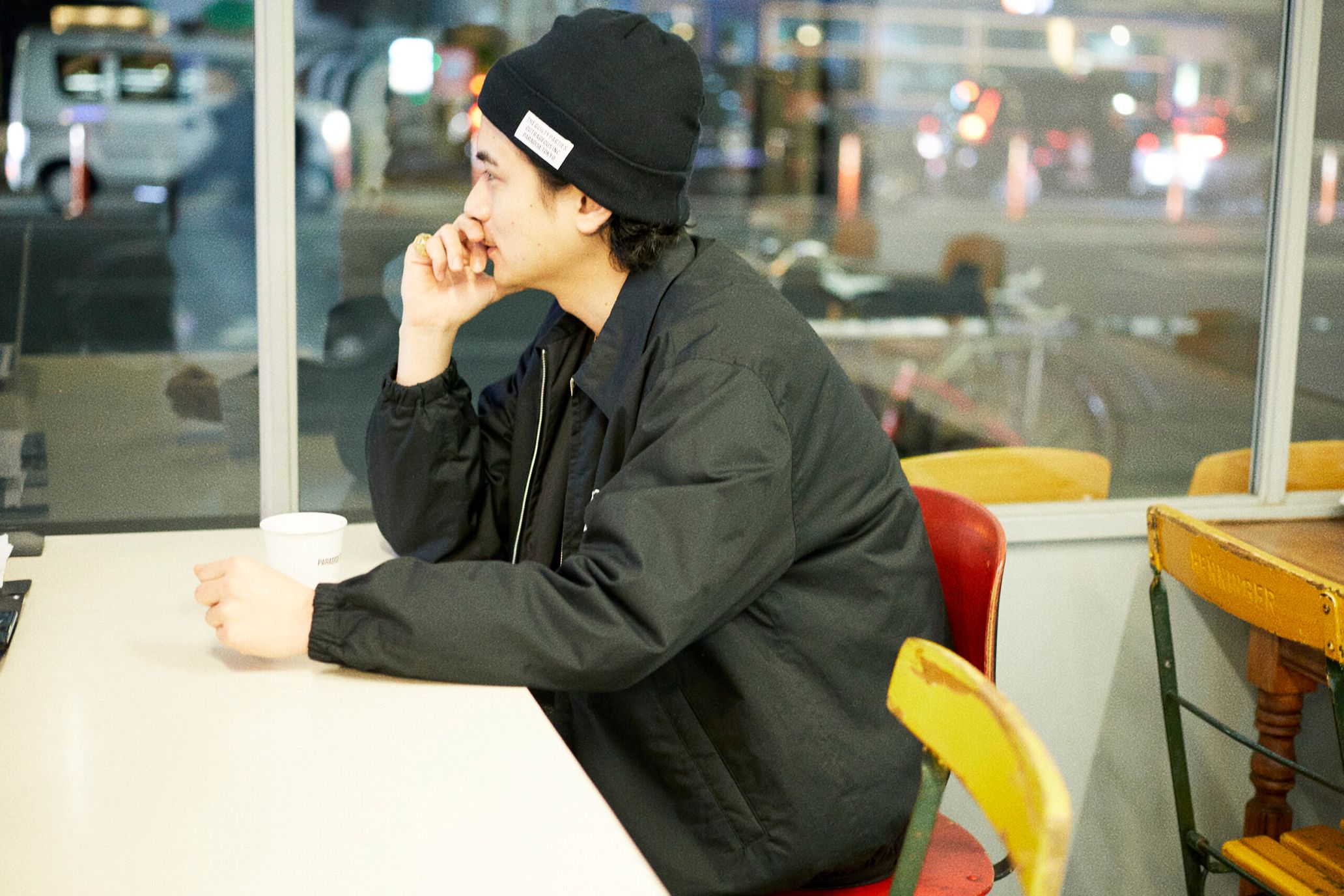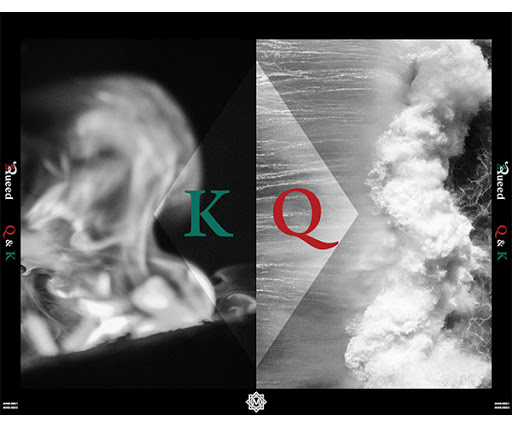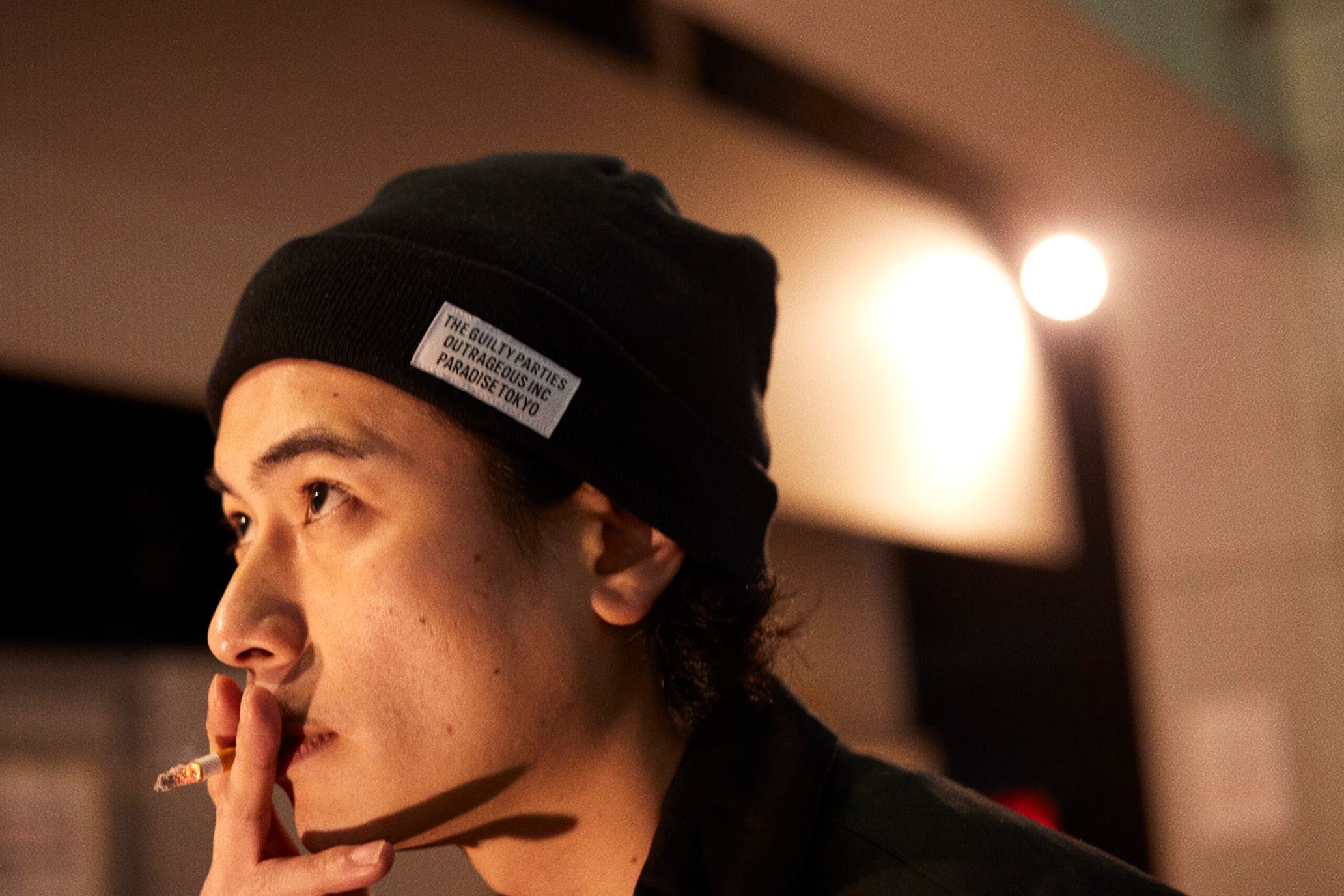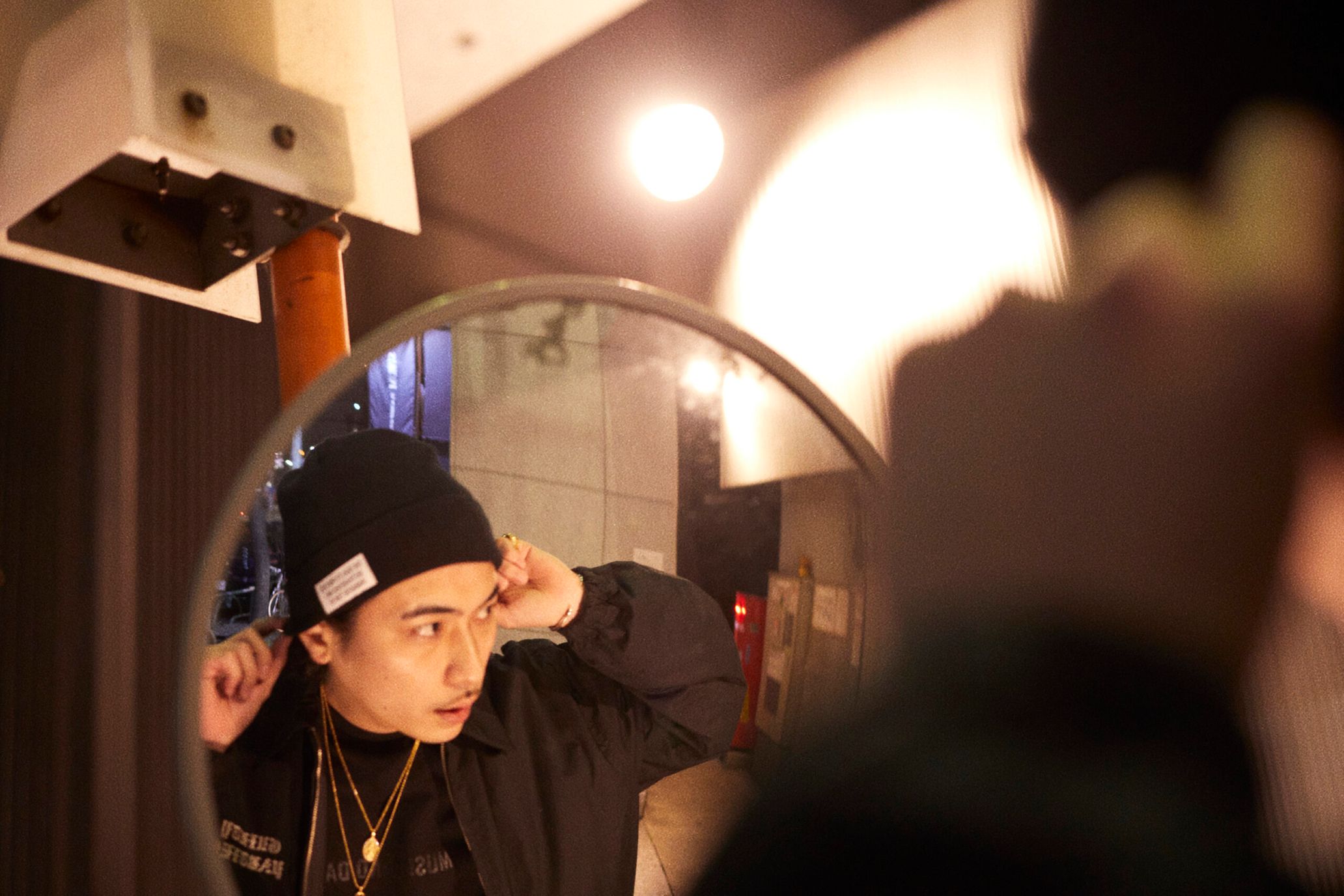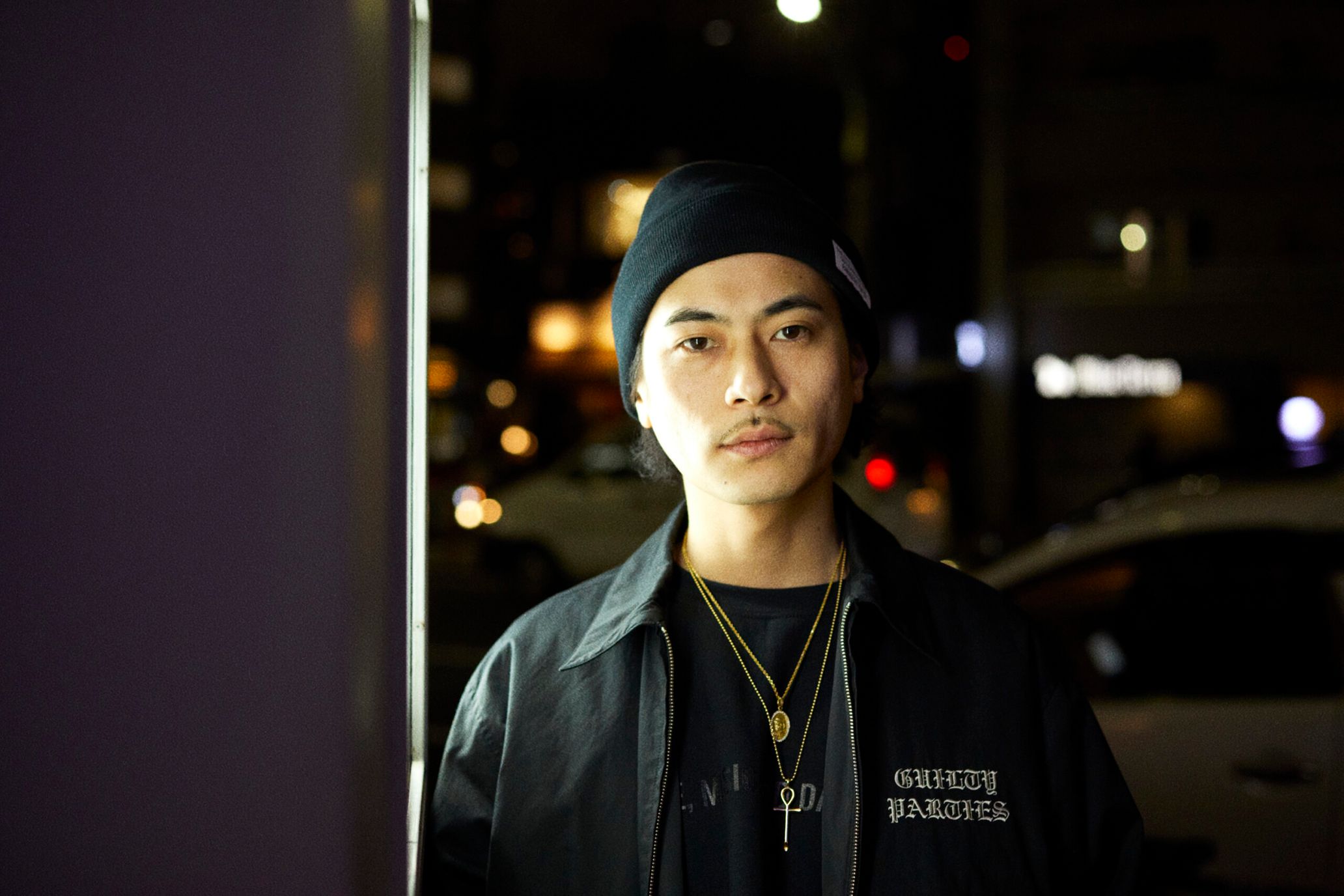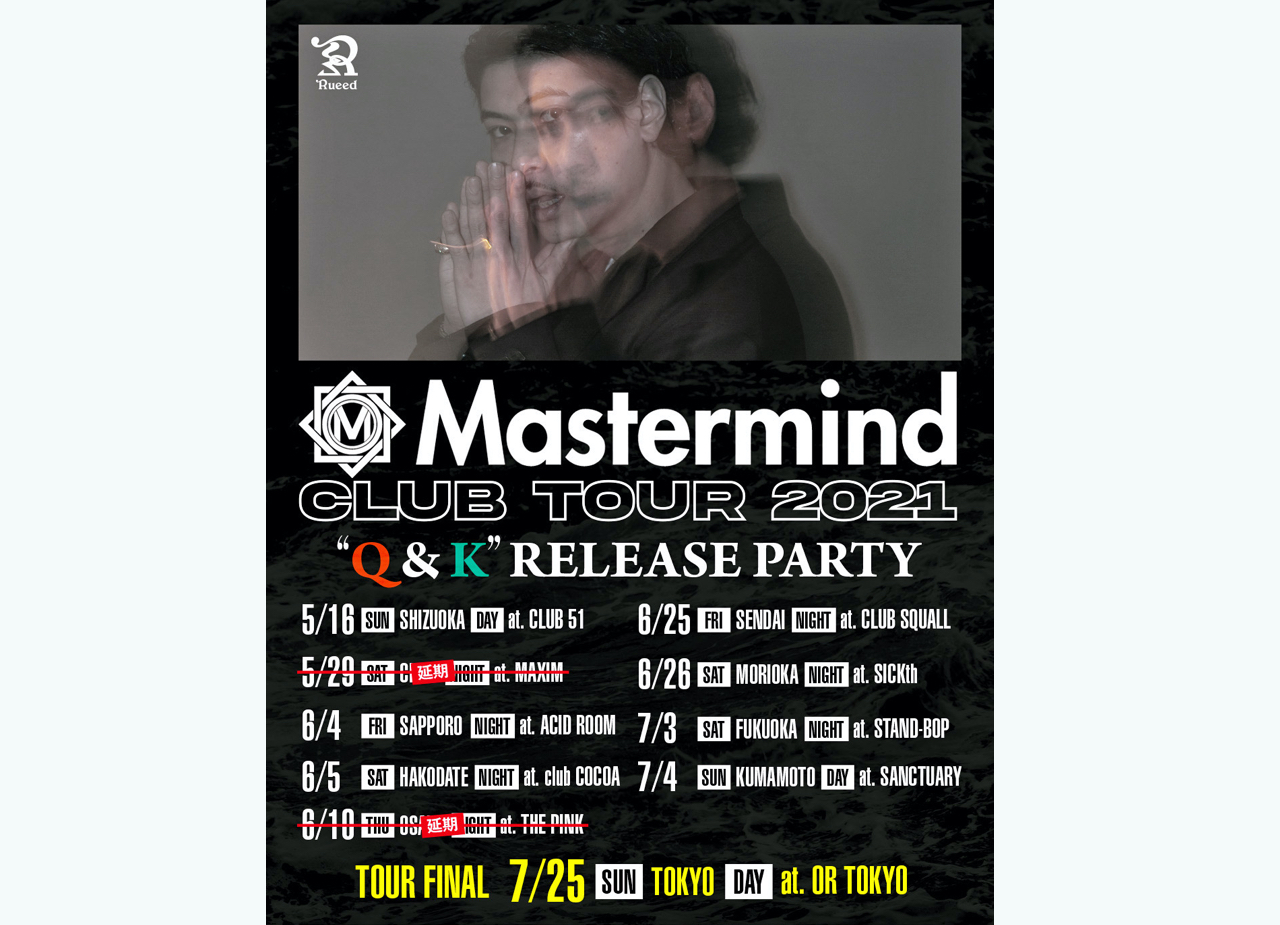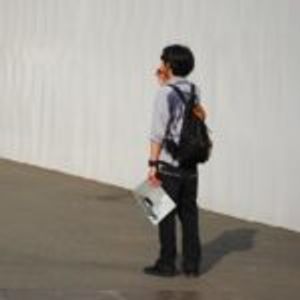Competing in ROAD TO Yokohama Reggae Festival to win a chance to perform at, now a legend and the biggest Japanese reggae music festival, Yokohama Reggae Festival, in 2007; becoming the youngest ever winner at the age of 18–This is how the the nascent artist garnering all the attention in the Japanese reggae scene, RUEED, came on the scene. 15 years have passed since then, and he has now turned 32 years old; As a man who takes the helm of the scene, what are his thoughts on the world that has changed by the novel coronavirus outbreak? And what kind of artistic endeavors is he taking on? The artist shares his inner thoughts before embarking on his tour Mastermind CLUB TOUR 2021 from May 16th.
A light of hope and hints to enjoy life—these are the things I want to encapsulater in my songs.
――How long has it been since you started your music career?
RUEED: I started when I was 15, and now I’m 33, so it’s been 18 years. In the beginning, my seniors were saying, “you’re too damn early to start!” But you know, time flies really fast.
――So, how did you start music…?
RUEED: In the beginning, I got into hip hop. When I was 14, I was listening to mixtapes and CDs that my oldest brother (actor Yosuke Kubozuka) had; in 2002, my oldest brother bought me tickets for King Giddra’s reunion show, and I went to see it with my second oldest brother, and it hit me hard. Around the same time, watching DJ KENTARO on MTV and DJ Qbert in the film, SCRATCH, got me thinking like, “Damn! I wanna DJ!” Then, my brother got me turntables for my birthday, and that’s when I started considering seriously on becoming a scratch DJ.
――I see, the starting of your career was hip hop.
RUEED: Yes, indeed. So then, I began buying records and found out that there are 7 inches and not just 12 inches. Gradually, I started realizing that “the audience and myself are enjoying more when I’m playing reggae,” and became a reggae selector (reggae DJ.) Soon after, I began writing my own songs, which leads me here today.
――Within the past 18 years, I think the Japanese reggae scene has changed dramatically, but what’s your take on that?
RUEED: I’m not really sure. The Japanese reggae scene itself is of course important, but since around last year, I’m starting to develop this “don’t-care-to-bother-about-others-around-me mindset,” so it’s hard for me to talk about the entire scene from an objective viewpoint. Sure, there are a lot of typical stuff I could say, for example, there are less reggae songs released than hip hop tracks, or reggae isn’t so lively anymore, and these negativities are getting more conspicuous especially now that there’re not many gigs happening due to COVID.
In other words, I’m reminded how gigs are imperative for the music. Reggae is all about the sense of collective engagement in the room formed between the artists and the audience, and it’s sad that we can’t have that now. Though, instead of being so pessimistic, I just got to do what I can with my upmost effort. Especially since last year, I’m getting into the zone, and (right now I’m like,) “I got this!”
――And last year during the pandemic, you’ve released two concept albums, Q and K.
(Mastermind)
RUEED: The unexpected circumstance of not being able to play gigs, which no one had expected, gave me a chance to reflect on myself—I was suddenly motivated and firing up my creativity, and I’d been able to zone in and come up with a new song almost everyday; instead of just having my homies listen to the songs, I was confident enough to deliver them to a wider audience. So, I thought that I should just go ahead and put them out there. In the beginning, I was thinking like, “should I release a full album with 10 songs?” But then I thought that I might as well make a concept album with two separate discs—and so, it came naturally.
――Since Q is consisted of mellow tunes for women, and K contains tunes that manifest strong will or stance, is Q for Queen and K for King?
RUEED: It’s true that I made it out of contradictory concepts like, “soft and sturdy” and “gentle and strong”, so I guess you can interpret that way, but that’s merely a side theme. In the end, I’m leaving it up to the listeners. Some people may think the Q is for “Queen”, and some may say “Quality”—I’m cool with however they take it. For example, the letter A might make some guys feel nostalgic as it’s the initial of their exes, and some might say it’s simply the first letter of the alphabet, or no, it’s for “Ace” or “Answer.”
――In that sense, Q can be for “Quest.” Relating to the word “quest”, was it different producing a record during the pandemic?
RUEED: Yes, it was different. Simply, since I haven’t had much chance to see people, I was able to focus on the production. I’ve realized the significance of exchanging ideas with the producer, and that I should present my ideas more clearly; I also listened to ideas that I wouldn’t normally accept. Of course, it wasn’t the case for all songs, but the two records were made of the creative directions, mood in the room, and words that slipped out of my friends’ mouths when they heard the demo, or pretty much anything that gave me chills.
“EVERYDAY”
“REMEMBER”
――While we’ve all been spending everyday not knowing how tomorrow is going to look like, were you ever enticed by negative thoughts in writing lyrics?
RUEED: Not really. In fact, I didn’t want to make people feel depressed after hearing my music, and in fact, I‘m not good at writing negative songs. I always have in mind to write songs that encapsulate a ray of light of hope or some hints to enjoy life.
――I think that’s absolutely essential for anyone living in the modern world.
RUDEED: Whenever you go on social media, there’s always someone throwing shade at someone else, and the world and the people are getting more divided that it’s becoming a chaotic society. We’re just being tricked by Babylon. So, I want to spread the message, “let’s all just be chill, and go with LOVE”; I think, at times like this, it’s especially essential to deliver souls to people through music and words that are there in the moment.
The mainstay of reggae—the sprit of rebel music—is especially what we need today
――I have a serious impression of you as a person and from your style as a reggae DJ. I want to see you write some frivolous lyrics sometime [laughs].
RUEED: [Laughs]. Lately, I’m beginning to want to write songs like that. Something like, waking up at 7 in the morning, making pancakes and drinking coffee [laughs]. But moreover, I insanely love Japanese aesthetics or expressions, like describing the feeling of sorrow with rain, and the beauty of the blank bred in the culture—so I guess these are what I want to pursue when writing songs. I know, it wouldn’t work out if I wanted to write sell-out songs, but you know….
――In the genre called reggae, or dance hall, emotions in songs are often conveyed straightforwardly and less poetically. So, in that sense, I think there are a lot of new things you can do with the music.
RUEED: I think so, too. Poetic portrayal exists in hip hop, so I think there should be in reggae, too. Relating to what we just talked about the title of my concept album, music gets interesting when there’s some blank space to let listeners imagine however they like. So, with that in mind, I think it would be legit if I could make trifling lyrics, like the one I mentioned earlier, sound fun and cool at the same time [laughs].
――There are many artists from different genres, like hip hop and R&B, featured on K, and I got to see a different side of you. How is the casting done?
RUEED: When casting collaborators, I don’t deem genres and things like that important to make something cool together. I make songs with people who I think are cool, and I only do a verse with them—And that should be enough for the listeners to feel the vibe of reggae or dance hall. With confidence, I can jump into anything without hesitation—that’s what I think.
――I see. Speaking of collaborating with other genres, people are interested in your genre-defying performances, like in ALI’s “FIGHT DUB CLUB feat.J-REXXX, RUEED”, which you joined with your closest ally, J-REXXX, who is also a reggae DJ.
RUEED: My band, DRLS, have done gigs together with ALI, so I knew the lead singer, Leo [Imamura], from before. Well, J-REXXX’s style is quite different from mine, and Leo offered both of us knowing that it would be interesting to see our styles being inconsistent with each other. So, J-REXXX was doing J-REXXX, and I was putting out my own style. But in the end, we were able to linkup the parts where we needed to, so it turned out amazing.
“RUEED&J-REXXX / SARABA、SHADY&ARC-MAN / KEEP BLAZING(SHINING TRAIN RIDDIM by 教授)”
――Like with the guest appearances, are there any challenges in teaming up and creating something together with different people, in both music and films?
RUEED: Essentially, I like the chemistry between people, so I don’t really feel any difficulties, and in fact, I get more excited or euphoric working with other people. They can conjure my power that I wouldn’t be able to put out on my own or didn’t even notice having; like 1 + 1 can turn into 10 or even 100. I believe in the powerful energy born between others.
――And it will be your 20th anniversary of debut in 2023, and you will be turning 35.
RUEED: I will be around 40 then—that’s insane [laughs]. I’m broadening my perspective as I age. On my 15th anniversary, I started my own label, Mastermind, and since then there are more moments where I see my potentials like, “I can do this and that,” and there are more and more things I want to challenge.
For example, I’m aspired to do something interesting with my illustrations, which I’ve been drawing for fun, and if the timing is right and if I have a chance, I want to challenge acting again. As I’ve done acting before, I’ve noticed that acting is similar to producing music. It was fun to see how films are not made with one shot, and the process of putting different cuts together is like making an incredibly massive album. Last time, I played the part of an extremely nice guy, so next time, I want to be a villain.
――Recently, you’ve often been linking up with your brother—how does it feel being on the same stage with him as a performer?
RUEED: It’s awesome to be able to work with my brother. We could be our normal selves around each other, but in other words, we’re too soft on each other [laughs]. Basically, what my brother has taught me or the beliefs he’s inculcated in me since I was in middle school, have made my foundation. His teachings had a formative influence on me and made me who I am today; we understand each other, and we inspire each other—we have a great relationship. Also, lately, my nephew is getting bigger, and I think I’m finally understanding how my brother saw me when I was younger. I was brought up in a warm family, so I want to spread the love I’ve been given. Like, I want to cherish the people who are close to me and be able to care for others. Nothing hard, and that’s all I want to do. I think it’s our job as a performer to spread our sentiments more and more, and let it become widespread.
――Do you feel that our generation is especially responsible in passing down the scene to the next?
RUEED: It’s kind of weird to say it myself but people like J-REXXX and I, who grind away in music, are definitely the ones leading the current Japanese reggae scene. Though, I still think we need to endeavor more.
I took my first step when I was 15 and got all the way to the top of a mountain, but right now I’m like noticing there is a higher mountain. So, there’s more climbing to do, but right now, I’m revved up like, “let’s do this!”
――What do you think the reggae scene in Japan is going to be like in the future?
RUEED: I don’t want people, who have never heard reggae music before, to see what’s on the surface, not noticing the intrinsic part of it and think, “reggae isn’t cool.”
Because we live in a world full of frustrated people, spilling and forcing negative thoughts to others, I think the spirit of rebel music, which is the mainstay of reggae, is especially important.
As a performer, we normally don’t think about this kind of stuff, though I think “rebel music” is the key for reggae to shine out of the diverse music scene.
RUEED
Born in 1988. From Kanagawa prefecture. RUEED started his career as a reggae DJ when he was 15 years old; in 2008, when he was 19 years old, he released his debut album, NEW FOUNDATION. He has burgeoned through putting out five full albums—which includes his first release—multiple concept albums, songs, and mix CDs, and he is now at the forefront of the scene. He is active in a wide variety of fields: While being part of his own band, DRLS, in 2017, he made his starring-role debut in the film, Sukabro. In 2018, he released his greatest hits album, MASTERMIND, in commemoration of his 15th year anniversary of debut. His two new albums, Q and K are currently available. Also, to celebrate his new releases, he is starting his tour, Mastermind CLUB TOUR 2021.
http://rueed.jp
Instagram:@rueedman / @rueed_info
Twitter:@RUEED_INFO
■LIVE : Mastermind CLUB TOUR 2021 “Q&K”RELEASE PARTY
Performers: RUEED and others
Dates:
May 16th Shizuoka @CLUB 51May 29th Chiba @MAXIM(POSTPONED)
June 4th Sapporo, Hokkaido @ACID ROOM
June 5th Hakodate, Hokkaido @club COCOAJune 10th Osaka @THE PINK(POSTPONED)
June 25th Sendai, Miyazaki @CLUB SQUALL
June 26th Morioka, Iwate @SICKth
July 3rd Fukuoka @STAND-BOP
July 4th Kumamoto @SANCTUARY
July 25th Tokyo @OR TOKYO
http://rueed.jp/live/
Photography Teppei Hoshida
Text TOMMY
Translation Ai Kaneda

